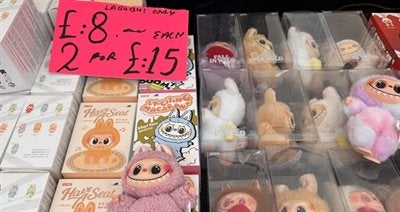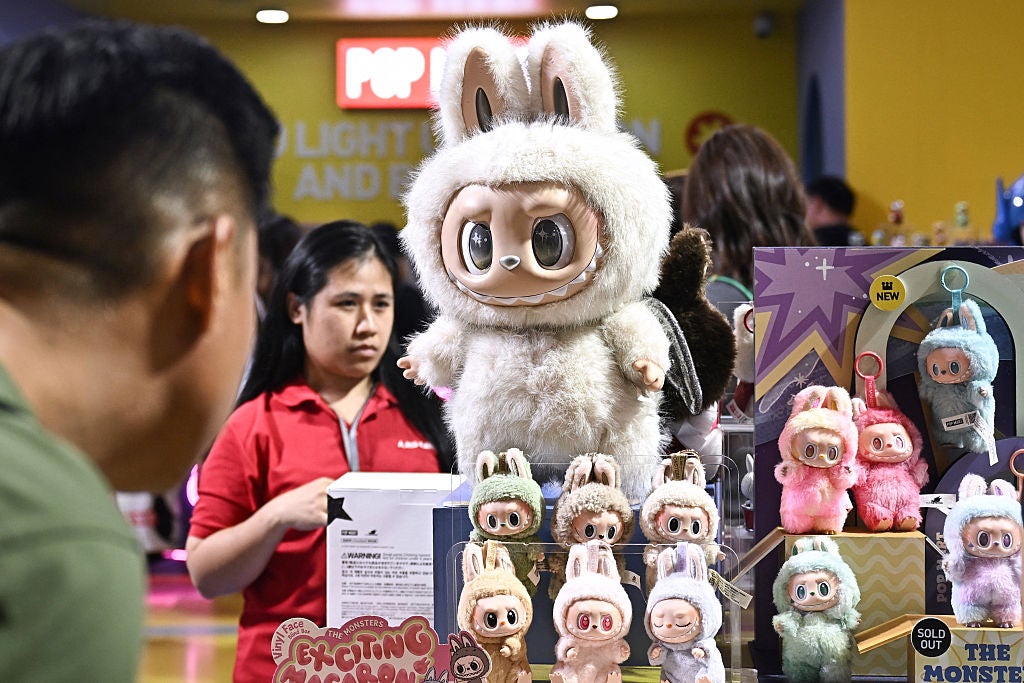Fake Labubu dolls make up 90 per cent of potentially “dangerous” fake toys coming into the UK, according to border force chiefs.
Agents have seized more than 259,000 counterfeit toys at the border so far this year, worth around £3.5 m, new Home Office data shows. They said around 236,000 of these were knock-off versions of the collectible Pop Mart monster dolls, which have prompted long queues and bedlam inside shops after going viral.
Authorities said that while parents may be tempted by the fake goods because of their cheaper prices, the products posed “serious risks” to children, warning that 75 per cent of the seized toys failed safety tests due to banned chemicals linked to cancer and choking hazards found.

Data from the Intellectual Property Office (IPO) shows nearly half (46 per cent) of those who purchased counterfeits reported problems ranging from toys breaking almost instantly to unsafe labelling, toxic smells and even reports of illness in children.
Helen Barnham, deputy director at the IPO, said fake products “bypassed every safety check” required by the law and “put children in real danger”. The office is now launching the “Fake Toys, Real Harms” campaign aimed at highlighting the dangers identified by expert testing of the phoney goods.
Ms Barnham explained: “With counterfeit toys, what you see is rarely what you get. Behind the packaging can be hidden choking hazards, toxic chemicals and faulty parts that put children in real danger.

“These products have bypassed every safety check the law requires, which is why we’re working with our partners to keep these dangerous fakes out of UK homes. Our ‘Fake Toys, Real Harm’ campaign aims to raise awareness among parents and present buyers of the hidden harms associated with counterfeits.”
Fake Labubus – often called “Lafufus” – are sold across corner shops and local supermarkets UK and Europe as demand for the real thing soars. But authorities are warning against them due to the risks posed by choking hazards and toxic chemicals.
Such warnings were issued by Westminster City Council earlier this month after Trading Standards seized 100 “Lafufu” dolls in central London. On close examination they were found to have feet that easily detached and eyes that popped out, the council said.
Genuine Labubu dolls, which can retail for hundreds of pounds, are identified by their furry monster-like appearance. The counterfeit dolls often have twisted limbs, misshapen heads or the incorrect number of teeth – real Labubus have nine.
Ms Barnham advised buyers to stick to trusted retailers, be wary of “too good to be true” prices, and look for a UKCA or CE safety mark and a UK or EU contact address on the packaging.
“Child safety must come first, so we’re urging parents – please don’t let your child be the tester.”
